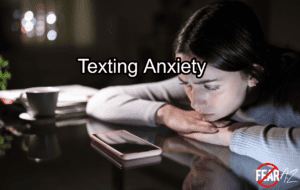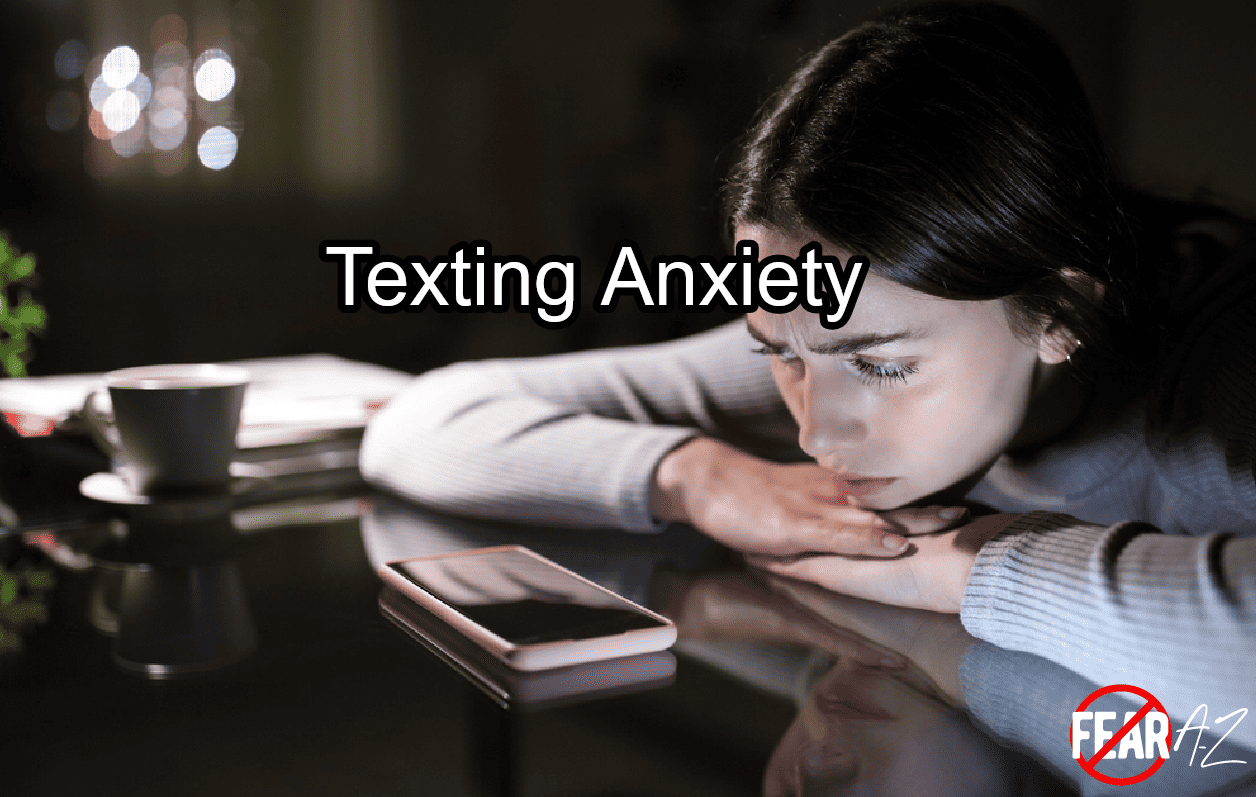Share This Article
Texting Anxiety: Understanding, Coping, and Overcoming
In this age of unmatched connectivity, it’s strange that many of us feel anxious when we text, which is one of the most popular ways to talk to people. Texting nervousness is a common among those of all ages. This disorder can show up in many ways, such as worrying about sending the wrong message or being anxious about not hearing back.
With its speed, ease, and ability to keep in touch with loved ones across long distances, texting has become an important way to communicate in modern times. Texting isn’t just important in personal relationships, though; it’s also important in work, where it’s used to schedule meetings and send important information.
But the technology that has changed the way we talk to each other has also brought about new problems, such as texting nervousness. While it’s normal to feel stressed out from time to time over a text message, many feel like texting causes them too much stress. Let’s look further into the different aspects of texting nervousness, its possible causes, and useful methods for learning to manage and perhaps even overcome your texting anxiety.

Understanding Texting Anxiety
Texting anxiety can look different in each of us, but it’s usually caused by social anxiety or overall anxiety. Here are some common signs and symptoms.
- Fear of misinterpretation: A prevalent concern is that a text’s tone or intent might be misconstrued, leading to misunderstandings or conflicts.
- Delayed responses: Many people experience heightened anxiety while awaiting a reply, sometimes interpreting a delay as a sign of rejection or disinterest.
- Over-analyzing: Sufferers often engage in over-analyzing their messages before sending them, seeking to avoid mistakes or offense.
- Avoidance: Some individuals avoid texting altogether, fearing the emotional toll it may take.
- Perfectionism: Perfectionists may grapple with crafting the ‘perfect’ message, which can be exhausting and anxiety-inducing.
- Rumination: After sending a text, people with texting anxiety may ruminate over it, continuously checking their messages or worrying about how their text was received.
Potential Causes of Texting Anxiety
Though it’s impossible to pinpoint a single cause of texting anxiety, there are many possible causes you might consider. From the pressures of society to the fear of rejection, texting comes with its share of burdens. Below are some examples of possible causes of texting anxiety.
Social Expectations
The constant connectivity of our digital age has led to heightened expectations for instant responses. This social pressure can cause anxiety when people can’t meet these expectations.
Miscommunication
In a text, nonverbal cues like tone of voice and body language are absent. This can lead to misinterpretations and anxiety about being misunderstood.
Fear of Rejection
Many individuals fear that their texts will be ignored or met with indifference, which can be a source of anxiety.
Perfectionism
Perfectionists may feel the need to craft impeccable messages, which adds an additional layer of stress.
Past Negative Experiences
Past misunderstandings or conflicts arising from text messages can perpetuate anxiety.
Underlying Anxiety Disorders
Texting anxiety can be a manifestation of a broader anxiety disorder, such as social anxiety or generalized anxiety disorder.
Coping Strategies for Texting Anxiety
Life with texting anxiety can be challenging. It’s important to learn and practice simple strategies to help you better cope with the nervousness you experience while texting. Here are several examples:
Mindfulness
Practice mindfulness techniques to stay present and reduce overthinking. Focus on the message at hand rather than worrying about future consequences.
Set Boundaries
Establish texting boundaries with friends and family, letting them know your response times. This can help alleviate the pressure to respond immediately.
Challenge Negative Thoughts
When negative thoughts arise, challenge them. Ask yourself if your fears are based on evidence or assumptions.
Graded Exposure
If avoidance is an issue, practice graded exposure by gradually increasing your texting interactions.
Self-Compassion
Be kind to yourself. Understand that nobody is a perfect texter, and misunderstandings happen.
Effective Communication
When sending important or emotionally charged messages, consider making a phone or in-person call instead.
Overcoming Texting Anxiety
Overcoming texting anxiety can be a gradual process, but it’s entirely possible. Here are some steps to help you move beyond texting anxiety.
Identify the Root Cause
Understand the underlying causes of your texting anxiety. Is it fear of rejection, perfectionism, or past negative experiences? Identifying the source is the first step to addressing it.
Seek Professional Help
If texting anxiety significantly impacts your daily life or is part of a broader anxiety disorder, consider consulting a mental health professional. They can provide specialized techniques and support.
Practice Desensitization
Gradual exposure to texting situations that trigger anxiety can help desensitize you to the fear. Start with low-anxiety scenarios and gradually progress to more challenging ones.
Build Confidence
Boost your self-esteem and confidence by celebrating successful texting interactions. Focus on the times you’ve communicated effectively.
Communication Skills
Improve your general communication skills, which can reduce misunderstandings and anxiety.
Set Realistic Expectations
Recognize that no one is a flawless texter. Understand that miscommunications will happen, and it’s a part of human interaction.
Self-Care
Engage in self-care activities that reduce overall anxiety, such as exercise, meditation, and relaxation techniques.
Living with Texting Anxiety
Texting nervousness can be hard to deal with and make daily life difficult. Every message exchange can be stressful because of worries about being misunderstood, responding too slowly, and wanting to be perfect. Overthinking and dwelling on things can wear you down emotionally. Those who try to avoid texting to deal with their anxiety make the problem worse by cutting themselves off from their business and social networks.
If you have trouble with texting and the anxiety that may come with it, there is hope. You can gradually take back control of your texting by figuring out what’s causing your anxiety, practicing awareness, and setting limits. Remember, communicating well isn’t about being perfect, but about connecting with others. Texting anxiety can be managed with self-compassion, patience, and maybe even professional help. With a little time and patience, you can rediscover the joy of useful digital communication.



